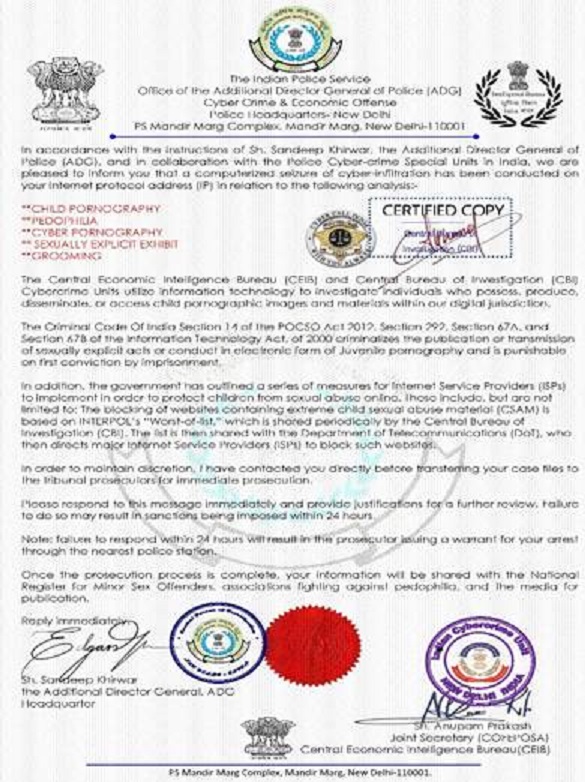Case Law Details
HIGH COURT OF MADRAS
Sri Krishna Constructions
versus
Tiffin’s Barytes, Asbestos and Paints Ltd.
O.S.A. No. 238 of 2012
JULY 2, 2012
JUDGMENT
P. Jyothimani, J.
Heard Mr. A. L. Somayaji, learned senior counsel for the appellant and Mr. G.R. Swaminathan, learned counsel, who has taken notice on behalf of the respondent.
2. The original company petition has been filed by the appellant against the respondent-company for winding up on the ground of inability to pay its debts, under section 433(e) read with sections 494(1)(a) and 439(1)(b) of the Companies Act, 1956. Pending the said company petition, the appellant filed Company Application No. 1911 of 2010, seeking an order of injunction in respect of “a” to “e” schedule of immovable properties, from creating any third party interest and also not to make any sale of the movable properties, including minerals lying at the stockyard of the mines of the company in Karnataka and Andhra Pradesh.
3. Originally, by order dated December 20, 2010, an order of injunction was granted in respect of all items of schedule “a” to “f” mentioned properties, and thereafter, by an order dated January 7, 2011, on an application filed by the respondent herein in C. A. No. 23 of 2011 to vacate the said order of injunction, the injunction order was restricted only in respect of the other items, except schedules “c” and “f”. Subsequently, when the matter came up before the company court, the company court, by its order dated March 14, 2011, has vacated the order of injunction granted on December 20, 2010, on the ground that the company court has no jurisdiction to pass an order of injunction since its jurisdiction under the Companies Act is restricted only in respect of protecting the interest of the creditors. It was against the said order, O. S. A. No. 164 of 2011 was preferred by the appellant and a Division Bench of this court, by judgment dated October 28, 2011, relying upon rule 9 of the Companies (Court) Rules, 1959, has categorically held that the company court, in addition to its jurisdiction to decide about the creditors’ interest, etc., has inherent powers to pass any other interim order or direction, which included grant of interim injunction. Ultimately, the Division Bench, taking note of the fact that the learned single judge has vacated the order of injunction without assigning any reason and also on the basis that it is not correct to hold that the company court has no inherent powers especially to grant injunction, while setting aside the said order passed by the learned judge, has restored the earlier order of injunction and directed the learned company court judge to decide the matter afresh by remitting the same. The operative portion of the judgment reads as under :
“10. In the above said circumstances, without assigning any reasons, the learned single judge has vacated the order dated December 20, 2010, which is not sustainable in law. Further more, it is pertinent to note here that the order dated December 20, 2010, has been modified on January 7, 2011, after hearing both sides. But, that order has not been challenged by either parties. In such circumstances, we are of the view that the order passed by the learned single judge is not sustainable, which is liable to be set aside. Hence, we are of the considered view that it is a fit case to set aside the order of the learned single judge, dated March 14, 2011 and restore the order dated November 7, 2011 and remit back the matter, to this company court to decide the matter afresh, after hearing the arguments for both parties.”
4. After the matter was remanded, it appears that the matter was heard by a learned judge for quite some time and ultimately on March 30, 2012, when the matter came up before the learned judge, it is seen that learned counsel appearing for the appellant, who was appearing for the applicant therein, has expressed her inability to proceed with the matter and therefore, she sought for an adjournment of the matter. Conceding her request, the learned judge adjourned the matter after ten days, however, has not extended the interim order of injunction already granted. It is aggrieved by the said order of the learned judge, the present appeal has been preferred by the original applicant before the company court.
5. Mr. A.L. Somayaji, learned senior counsel appearing for the appellant would submit that when once the personal reason, which has been expressed by learned counsel for the applicant, had been admitted by the learned judge and accordingly granted 10 days time, the further order in not extending the order of injunction, without assigning any reasons, is absolutely opposed to the principles of law. According to him, even if the learned judge wanted not to extend the order of injunction, he could have very well rejected the request for adjournment, and dismissed the application, assigning proper reasons. His contention is that when once the Division Bench has decided the issue by restoring the order of injunction, the same cannot be refused to be accepted by the learned judge, which is improper.
6. On the other hand, Mr. G. R. Swaminathan, learned counsel appearing for the respondent has contended that the company petition was heard on many occasions in detail by the learned judge and at the time when the portfolio was about to be changed, the request made by learned counsel for the appellant was not actually accepted by the learned judge, and therefore, the order of the learned judge even if granting an adjournment by not extending the order of injunction, cannot be found fault with since it is totally the discretionary power and when once the learned judge passed an order exercising the discretion, there is no reason to probe into as to whether the discretion has been properly exercised or not. He would also rely upon one of the earliest judgments on this issue decided in (i) Timmalapalli Virabhadra Rao v. Sokalchand Chunilal AIR 1951 Mad 796 and (ii) Ganthimathi v. Commissioner, Pudukottai Municipality [1992] 1 LW 29. Learned counsel also relied on one of the judgments of the apex court in Shah Babulal Khimji v. Jayaben D. Kania [1981] 4 SCC 8, to substantiate his contention that when a trial judge grants an interlocutory order by exercising his discretion, such order cannot be treated as a judgment so as to enable the appellate court to take cognizance of the said matter.
7. We have considered the rival submissions made by learned counsel appearing on either side and also referred to the judgments relied upon by the respondent. As rightly submitted by learned counsel for the respondent, the apex court in Shah Babulal Khimji (supra), has framed certain considerations, which reads as under (page 58) :
“119. Apart from the tests laid down by Sir White, C. J., the following considerations must prevail with the court:
(1) That the trial judge being a senior court with vast experience of various branches of law occupying a very high status should be trusted to pass discretionary or interlocutory orders with due regard to the well-settled principles of civil justice. Thus, any discretion exercised or routine orders passed by the trial judge in the course of the suit which may cause some inconvenience or, to some extent, prejudice one party or the other cannot be treated as a judgment otherwise the appellate court (Division Bench) will be flooded with appeals from all kinds of orders passed by the trial judge. The courts must give sufficient allowance to the trial judge and raise a presumption that any discretionary order which he passes must be presumed to be correct unless it is ex facie legally erroneous or causes grave and substantial injustice.
(2) That the interlocutory order in order to be a judgment must contain the traits and trappings of finality either when the order decides the questions in controversy in an ancillary proceeding or in the suit itself or in a part of the proceedings.
(3) The tests laid down by Sir White, C. J. as also by Sir Couch, C. J. as modified by later decisions of the Calcutta High Court itself which have been dealt with by us elaborately should be borne in mind.”
8. However, in our considered view, it has to be said that by not extending the order, the right which has already been conferred on the appellant by the Division Bench has been interfered with, which certainly requires some reasons acceptable to a judicial mind.
9. At the outset, it is clear that as it is in the judgment of the Division Bench, which arose almost under similar circumstances, wherein the learned judge has abruptly dismissed the application for injunction on the ground that the company court has no jurisdiction to pass an interlocutory order or injunction or direction, except to safeguard the interest of the creditors. It was, in those circumstances, the Division Bench, in categorical terms, has held that the company court has power to pass such interlocutory orders and with that finding, the earlier order of injunction granted was restored and the matter was remitted for the purpose of deciding the said application for injunction as well as the application filed by the respondent to vacate the order of interim injunction. When that is so, as rightly submitted by learned senior counsel for the appellant, when on a personal ground, a counsel requested for an adjournment and that request having been considered, as it is seen in the impugned order of the learned judge by adjourning the matter after ten days, we are of the view that there is absolutely no reason for not extending the order of injunction. If the learned judge had heard the entire matter on merits and wanted to decide the matter against the applicant, he is certainly entitled to, provided a reason having been assigned. Unfortunately, the learned judge, in the impugned order, has not assigned any reason for not extending the order of injunction. The contention of learned counsel for the respondent that this will not amount to passing a final order on the application for injunction as well as on the application to vacate the interim order, which were pending before the company court, and the appellant can always work out his remedy, is also not sustainable, since by virtue of the impugned order, in not extending the interim order, certain right which has been conferred by the earlier order passed by the Division Bench, has been interfered with, without assigning any reasons. In such view of the matter, we are of the view that the company court should be requested to decide the company applications finally, by giving opportunity to both parties.
10. Accordingly, the impugned order passed by the learned judge stands set aside and the order of injunction, which was already in existence as per the judgment of the Division Bench dated October 28, 2011, stands restored and the learned judge is requested to give priority to the company applications filed seeking interim injunction as well as to vacate the interim injunction and if necessary, the company petition also and decide the same, after giving opportunity to both parties. As we were informed that the applications have been posted before the learned judge on July 4, 2012, we request the learned judge to decide the issue expeditiously, preferably within a period of three weeks. No costs. M. P. Nos. 1 and 2 of 2012 are closed.



























